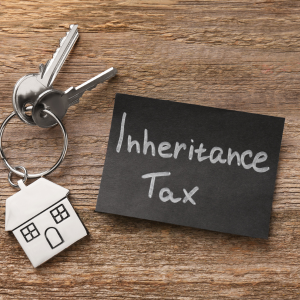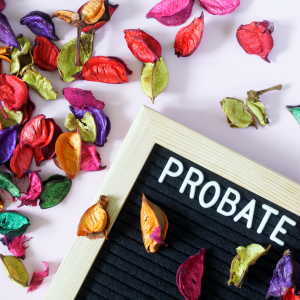
How to Deal with the Tax Consequences of Selling an Inherited House in Georgia
It can be hard to sell an inherited home in Georgia, especially since the new tax laws for 2024 will change how heirs sell real estate. There are a lot of things to keep track of, such figuring out capital gains tax and property assessments, as well as exemptions and probate. You’re not the only one who doesn’t know what to do next after inheriting a property. The process can be hard, but if you have the correct information, you can make smart, safe financial choices.
This guide tells you all you need to know about selling a house you inherited in Georgia, such as what taxes you have to pay, how probate works, and useful tips for lowering your tax bill. If you’re not sure whether to sell, rent, or keep the property, knowing the most recent tax laws will help you preserve your inheritance and get the most money back.
Key Highlights
- Heirs can sell property more easily in Georgia because there is no state inheritance tax.
- The capital gains tax is based on how much the property has gone up in value since the person died.
- Probate makes sure that the will is genuine and that debts are paid off before assets are given out.
- Good estate planning can help you pay less in taxes and make it easier to divide up your assets.
- Before you sell your property, doing smart repairs and upgrades might raise its value a lot.
What You Need to Know About Taxes When You Sell an Inherited House
You might be wondering what taxes you’ll have to pay when you sell a home you got as an inheritance. When you hear terms like “stepped-up basis” or “capital gains,” taxes on inherited real estate can seem confusing. The good news is that selling an inherited house in Georgia is usually easier than people think. However, you do need to know how the main taxes work and what to look out for.
What Inheritance Tax Does for Property Sales

The good news is that Georgia doesn’t have an inheritance tax. That means that if you get a house as an inheritance, you don’t have to pay the state anything just because you got it. This alone makes things a lot easier for you than for heirs in places that still have inheritance taxes.
But that doesn’t mean there are no taxes at all. Georgia doesn’t have an inheritance tax, but if the estate is big enough, the federal government may charge estate taxes. The federal estate tax only applies to estates that are worth more than a specified amount. In 2024, that amount is several million dollars. Most people won’t reach that number, but if you inherit property from a particularly valuable estate, you should be aware of it.
It’s crucial to know the difference between inheritance tax and estate tax. Before the assets are given to the heirs, the estate has to pay estate tax. The person who gets the inheritance has to pay inheritance tax, although Georgia doesn’t have that tax.
You should also keep an eye out for any liens or obligations that are linked to the estate. Before the property may be sold or the money can be given to the heirs, the deceased’s debts, including overdue property taxes or loans, must be paid.
Georgia makes the inheritance tax part easier, but it’s still a good idea to keep up with federal standards and how they vary from year to year. A simple talk with a tax professional or estate lawyer can help you avoid problems in the future.
How the Gains Tax Affects Your Deal
When you sell a house you inherited, the most important tax to think about is capital gains tax. If you sell the house for more than its fair market value (FMV) at the time you got it, you have to pay this tax.
Heirs are lucky because they get something called the stepped-up base. This law changes the home’s cost basis, which is basically its “purchase price” for tax purposes, to the market value of the residence on the day the person died.
Take a look at this:
Let’s imagine your parents bought the house for $100,000 a long time ago, but when you got it, it was worth $350,000. Your cost basis goes up to $350,000 because of the stepped-increased basis. You would only have to pay capital gains tax on the $10,000 profit if you sold it for $360,000, not on the $260,000 difference between what you paid for it and what you sold it for.
This regulation typically helps heirs save thousands of dollars in taxes.
Another thing to think about is how long you plan to keep the property before selling it. If you sell within a year, the profit is deemed short-term capital gain and is taxed at your normal income tax rate. If you keep it for more than a year, it’s a long-term capital gain, which normally has a lower tax rate.
If you’re going to buy another home, you might want to look into a 1031 exchange, which might put off paying capital gains taxes for a while. But this plan has rigorous regulations and deadlines, so you need to get professional guidance before you go ahead.
How to Get Around Georgia’s Probate Court
In Georgia, probate is the legal process of settling the estate of someone who has died. It is also the first step you must complete before you can officially own or sell a residence you inherited. It may seem scary at first, but after you know the major processes, it gets a lot easier.
How to Clear Probate When You Get a House
The first thing you need to do in Georgia’s probate process is file a petition with the probate court in the county where the person who died lived. Then, if there is a will, the court checks it and names an executor, which is normally the person named in the will. If there is no will, the court chooses an administrator to take care of the estate.

The executor is in charge of the deceased person’s money, debts, and making sure that property is given out in the right way. This means making a list of all of the deceased’s assets, such as their real estate and bank accounts, and figuring out how much they are worth.
The executor must do the following once this list is finished:
- Tell your creditors and pay off any bills you owe.
- Pay any taxes or bills for your property that are due.
- Make sure that the estate’s business is done in an open way.
The property can only be officially sold or transferred if these steps have been taken. Creditors have around six months to pursue claims against the estate. So, it’s best to wait until that time is up before giving away or selling property.
Here are some useful guidelines for heirs during probate:
- Make sure you keep accurate records of all payments and communications.
- Take care of the property so it doesn’t become damaged or lose value.
- Make sure that all of your insurance coverage are up to date.
- To avoid delays or arguments, hire a probate lawyer who knows Georgia law.
- The probate procedure can be boring, but if you take your time and get the correct help, it will be much simpler to get through.
- Legal Things to Think About and Papers You Need
Being organized is very important when it comes to probate because there is a lot of paperwork to do. You will require a few key papers, such as:
- The will of the person who died (if there is one)
- The certificate of death
- Lists and evaluations of estates
- If you need to, estate tax returns
- Documents for transferring property deeds
There is no state-level estate tax in Georgia, although big estates may still have to file a federal estate tax report. You have nine months after the person’s death to do this.
It is also crucial to get an updated property appraisal because it sets the home’s fair market value for both probate and future capital gains calculations.
The executor submits paperwork to give the heirs the title to the property when all obligations and taxes have been paid. If there are more than one heir, the executor may need to work out a sale and split the money fairly.
Some families put their property into living trusts to avoid some elements of probate, which saves them time and money on legal fees. If you are in charge of an estate that hasn’t been put in a trust, you should talk to a Georgia estate lawyer to make sure everything goes smoothly and properly. If you’re living in a probate house, you can generally remain there during the probate process as long as you maintain the property and cover any necessary expenses, but the exact length of time depends on how long the probate process takes—which in Georgia can range from several months to over a year.
How estate planning affects home sales
You might assume that only wealthy individuals need to plan their estates, but estate planning is one of the smartest financial steps any homeowner or investor home buyer in Georgia can take. With the right plan in place, heirs can save significant time and money, minimize taxes, and make property transfers or sales much smoother.
Ways to Lower Your Tax Bill
When you sell an inherited house, a well-thought-out estate plan can help you pay less in taxes. The federal estate tax exemption is one of the most well-known instruments. It lets a specific amount of the estate’s assets pass tax-free.
Trusts are another good way to do things. Trusts can avoid assets from going through probate, protect them from creditors, and occasionally lower estate taxes. For instance, an irrevocable life insurance trust might give heirs tax-free benefits that don’t go toward the taxable estate.
Families also give away things as a way to help. The IRS lets people give a specific amount of money each year without having to pay gift tax. Over time, this might lower the estate’s taxable worth.
Timing and professional advice are important, though. Giving or transferring property too quickly can cause capital gains problems later. That’s why it’s a good idea to hire a financial advisor who knows how Georgia and federal tax rules work together.
The step-up in basis is still one of the most useful instruments for heirs who want to sell because it lowers their capital gains tax bill by a lot. If you time your sale well and use these tactics, you may be able to keep more of the money you make from selling your inherited property.
Knowing how estate distributions work in Georgia
Georgia has a defined legal mechanism for dividing up estates, but how the assets are split up depends on whether the person who died has a will. A legitimate will tells how to divide up assets, such as real estate. If there is no will, Georgia’s laws about intestate property decide who gets what.
In general, the executor makes a list of the assets, pays off debts and taxes, and then gives the rest to the heirs. This process must be done according to Georgia legislation to avoid problems or delays.
If the estate has real estate that more than one heir inherits, they will need to agree on what to do with it. Some families decide to sell and split the money, while others may buy out one heir’s part. Clear communication and, in some cases, legal mediation can assist keep problems from happening.
Make sure the title is clear and the property is officially in the heirs’ names before you sell it. A sale can be delayed or even stopped if there are unresolved issues or missing papers. A Georgia real estate lawyer can help you make sure everything is in order before you put your home up for sale.
Getting Your Inherited Property Ready to Sell
Now that the legal and tax matters are settled, it’s time to prepare your property for the market. With the right upgrades and smart marketing strategies, you can attract motivated buyers and get the best possible price, perfect if you’re looking to sell your house fast in Fort Stewart.
Necessary Repairs and Improvements
Begin with the basics: safety and usefulness. Make that the roof, foundation, plumbing, and electrical systems are all working properly. These repairs must be done; purchasers and inspectors will see them right away.
Next, think about upgrades that will have a big effect. Kitchens and bathrooms are usually the finest places to put your money. Even little changes, like putting in new fixtures or painting, can make a tremendous difference.
Don’t forget about the small things that make a difference. A new coat of paint in a neutral color, clean floors, and modern lighting can make an old space feel like it’s ready to move into.
It also depends how the house looks from the street. A tidy walkway, simple landscaping, and a newly painted front door can all make a house feel welcoming.
It’s crucial to find a balance between keeping the elegance of older or historic properties and adding modern amenities. You can keep things like moldings and fireplaces the same while making things like windows and HVAC systems more energy-efficient.
Finally, think about staging the house. Homes that have been professionally staged tend to sell faster and for more money. If that’s not in the budget, just cleaning up and moving furniture around can make a great difference.
How to Market Historical Estates
If you got a historic estate as an inheritance, you should market it by telling its past and showing how it is different from other homes. People who buy historic homes are generally interested in the architecture and history of the home as much as the home itself.

Find out when the house was built, who lived there, and what makes it distinctive before you start. Use that history in your marketing and listings to help potential buyers feel like they are part of something.
Hire a professional photographer and take virtual tours to show off unique features like original woodwork or historical fixtures. Good pictures are very important for ancient homes.
You may also put the property on websites that are only for people looking for historic or luxury properties. If you work with a real estate agent who knows a lot about historic houses, they can help you find the suitable purchasers and answer any questions they may have about preservation.
Don’t underestimate the value of neighborhood relationships. Local historical organizations or preservation groups sometimes know people who are looking for properties like yours.
Finally, think about when you want to sell. The greatest seasons to list in Georgia are usually in the spring and early summer, when the market is busiest and homes look their best from the street.
As 2024 continues, it’s more important than ever for heirs in Georgia to understand the tax implications of selling inherited property. Knowing about factors such as federal estate tax limits, capital gains, and probate laws can have a major impact on your financial outcome.
By working with experienced professionals—such as real estate agents, attorneys, and tax advisors—you can protect your inheritance, stay compliant with regulations, and make informed decisions about your property’s future. Whether you choose to sell immediately or plan ahead, understanding these details will help you make the most of your inherited home.
If you decide that selling is the right choice, Yellow Card Properties buys houses for cash in any condition, helping you skip repairs, avoid delays, and move forward with ease. Contact us today to see how we can simplify the process and help you get the best value for your property.
FAQs:
If you sell a house you inherited in Georgia, what will happen with your taxes?
If you sell the house for more than it was worth when you inherited it, you may have to pay capital gains tax. Georgia does not have an inheritance tax.
What effect does capital gains tax have on selling a home that you inherited in Georgia?
You only have to pay taxes on the difference between the sale price and the stepped-up basis, which is the home’s fair market value when you got it.
What does the probate process in Georgia look like for property that you inherit?
Probate means making sure the will is genuine, paying off debts, and giving assets to heirs. The property can only be sold or given away after that.
How might estate planning help you sell a house you inherited in Georgia?
Using trusts or gifting techniques as part of smart estate planning can help you pay less in taxes and make the selling process go more smoothly.
When heirs are getting ready to sell a house they inherited in Georgia, what upgrades should they think about?
Focus on making necessary repairs, updating kitchens and bathrooms, and making the outside of the house look better. For old buildings, add modern conveniences while keeping the unique architectural characteristics that make them special.
Helpful Georgia Blog Articles
- Navigating House Sales Before Divorce In Georgia
- Maximize Your Profit: Selling A House As-is In Georgia
- Effective Strategies For Selling A Hoarder House In Georgia
- How To Successfully Sell Your Home During Foreclosure In Georgia
- Strategies For Selling A House With Code Violations In Georgia
- How to Sell Your House Rent-to-Own in Georgia
- Capital Gains Tax After Selling a House in Georgia
- Can I Switch Real Estate Agents in Georgia?
- How To Sell A Condemned House in Georgia
- Can An HOA Foreclose On A House in Georgia
- For Sale By Owner Buyers Agent Commission in GA
- Can You Live In A House During Probate in GA
- Taxes When Selling An Inherited House in GA

